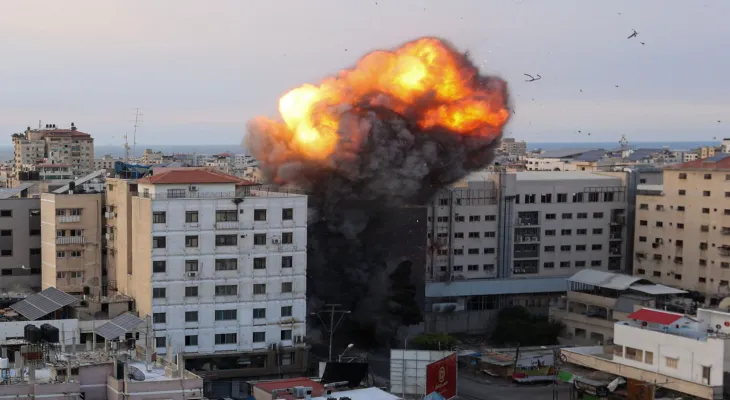Search here
Newspaper
Search here

Arab Canada News
News

Published: October 10, 2023
Since the outbreak of the recent war on Gaza a few days ago, its repercussions have escalated to include the Israeli economy, indicating the depth of the crisis faced by the Israeli government and the difficulty of absorbing the side effects of the military crisis, especially with the evolution of warfare, the expansion of confrontation areas, and the emergence of new thorny issues, such as the prisoners' file and other related matters. The economy then becomes another factor in the repercussions being experienced by the State of Israel.
The economy of the occupying state is heading toward the unknown since the outbreak of military confrontations between the occupation army and the Palestinian factions in Gaza and its surroundings from the dawn of last Saturday, October 7, 2023. The effects of this deteriorating trend on the Israeli economy have become evident through rapid and massive losses suffered by various economic sectors.
Starting from the decline of the Israeli currency "shekel" to disturbances in gas production and export, tourism losses, losses in various transport sectors, and many other aspects that threaten a major and unprecedented crisis.
Although the losses are still in the initial repercussions stage on the Israeli economy, the rapidly unfolding events in Gaza and its surroundings, and all over the occupied Palestinian territories, have led to historic developments in the economic arenas of the occupying state, represented by the following:
The Israeli shekel "the local currency of the occupying state" has fallen to its lowest levels in nearly eight years against the US dollar, marking a significant economic impact as the conflict between the occupation and the Palestinian factions continues to escalate.
The Israeli central bank has taken unprecedented measures to stop the free fall of the shekel, including selling foreign currencies for the first time in its history.
The rapid decline in the value of the shekel occurred on Monday, dropping more than 3 percent against the US dollar, reaching 3.9581 shekels per dollar.
This decline comes as the conflict in the region intensifies, raising concerns not only about the immediate economic consequences but also about the stability of the Israeli economy in a region witnessing ongoing wars, and in the absence of any real space for understanding or finding a stable safe formula for Israelis and Palestinians.
The Tel Aviv Stock Exchange, which is a key indicator of the economic health of the occupying state, also recorded a sharp decline, with the TA 125 and TA 35 indices falling by up to seven percent, reflecting a loss of investor confidence, as well as indicating the rapid turmoil in the Israeli market.
In a related context, government bond prices have suffered from the repercussions of the war on Gaza, dropping by up to three percent.
The Ministry of Energy in the occupying government announced the temporary suspension of production from the Tamar gas field located in the Mediterranean Sea. This decision, made due to the recent security situation, has raised concerns about Israeli energy supplies and their implications for the economy.
The Israeli occupying government now faces the challenge of obtaining alternative fuel supplies to meet its energy needs during this uncertain period.
The economic impact of the ongoing war in southern occupied Palestine extends beyond financial markets and energy production, as foreign tourists have begun to leave the occupied territories in flight from the rising violence.
Many airlines, including Air France and American Airlines, have canceled their flights to Israel, further isolating the country and disrupting travel plans.
Additionally, shipping companies have canceled cruise trips to Israeli ports, disrupting international trade routes.
Experts and specialists have long warned of the devastating economic losses that could be imposed by the military escalation between the occupation army and the Palestinian factions. The current situation threatens not only immediate economic stability but also raises concerns about its long-term impact on the Israeli economy.
With tourism, trade, and energy production affected, the country faces multiple challenges on various economic fronts, and as the conflict continues to escalate, attention will remain focused on the vulnerability of the Israeli economy and its ability to withstand these difficult circumstances.
Comments